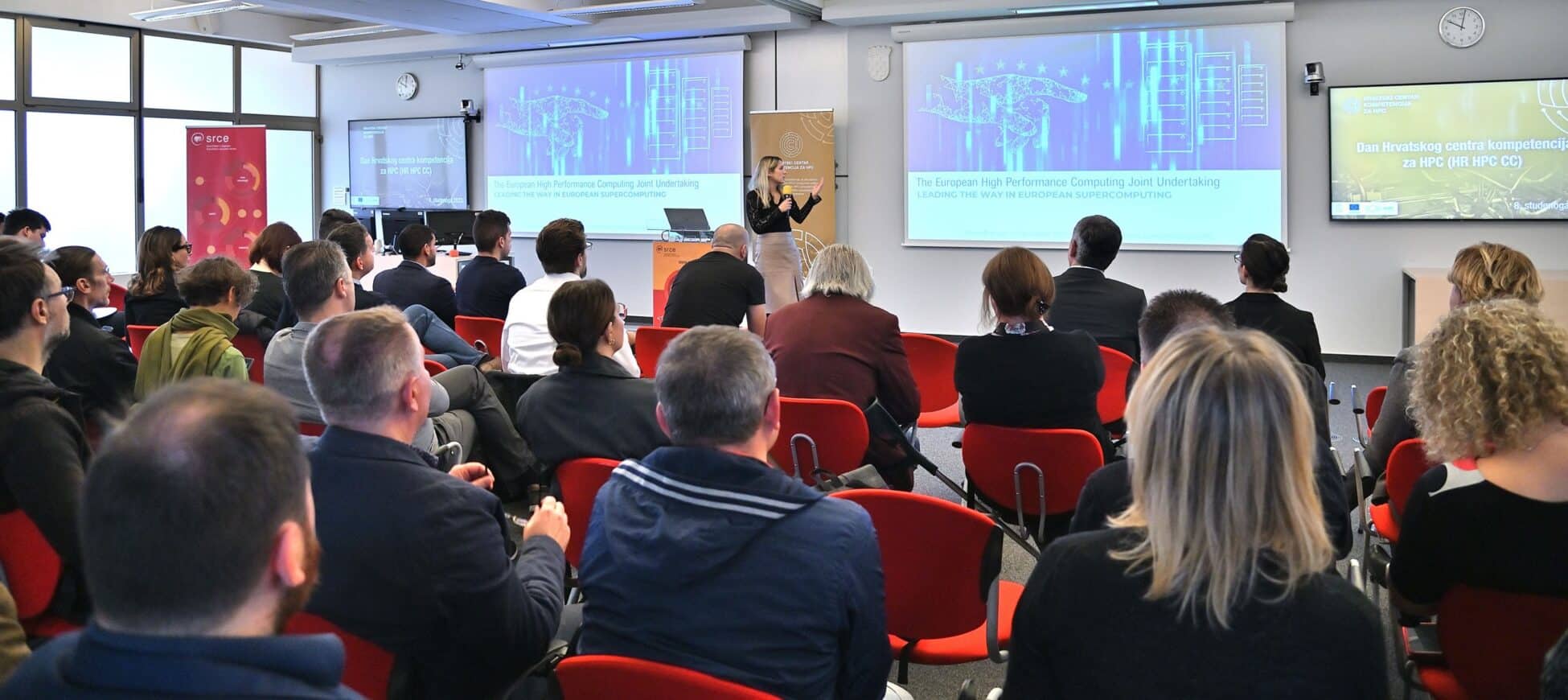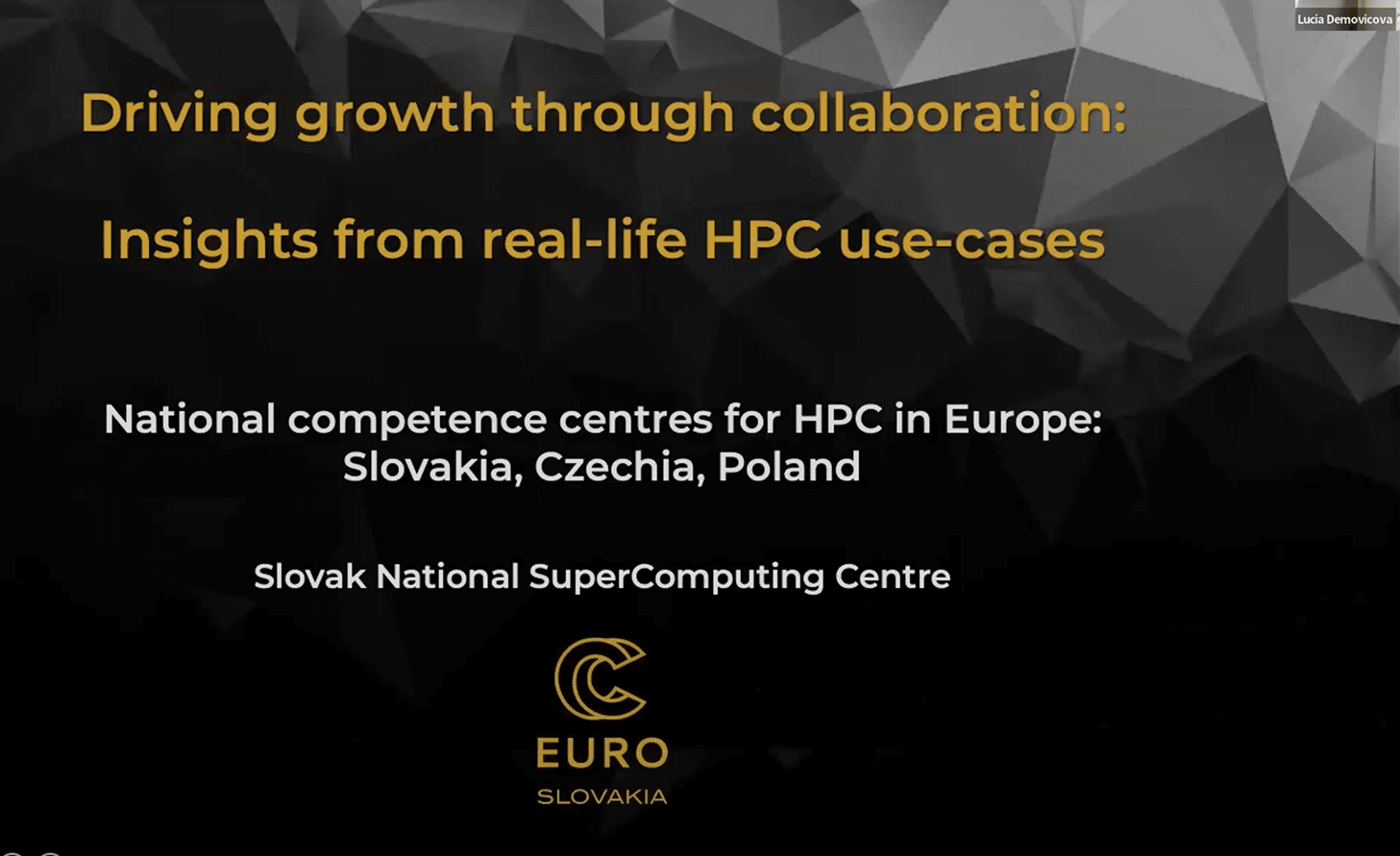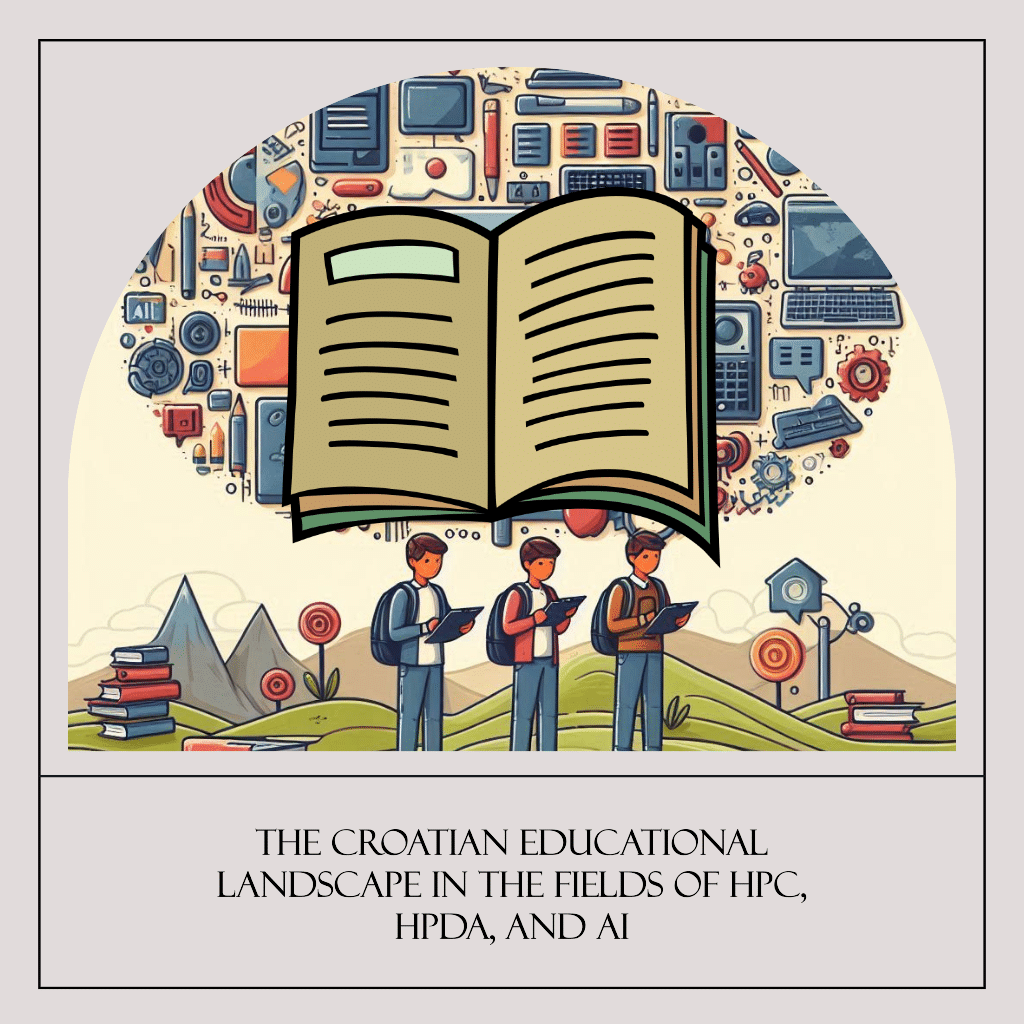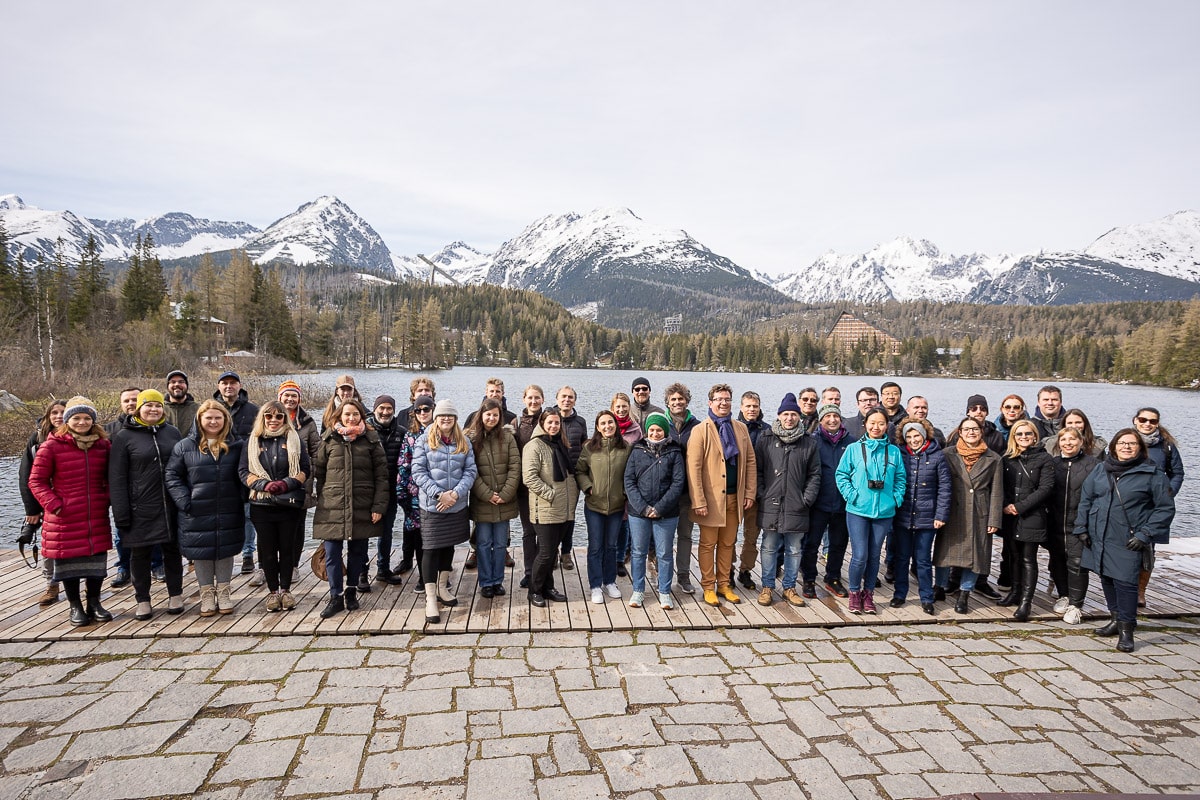
The Day of the Croatian Competence Center for HPC was held on November 8th 2023 at the University Computing Centre (SRCE) in Zagreb, bringing together national and European experts in the field of High-Performance Computing (HPC).
SRCE Director Ivan Marić, emphasized the importance of high-performance computing for the development of science, economy, and society as a whole. Jelena Ilić Dreven from the Ministry of Science and Education highlighted the ministry’s continuous support for the work of the Croatian Competence Center for HPC and the development and application of HPC in Croatia.
Klara Meštrović from the EuroHPC Joint Undertaking emphasized that they have provided seven supercomputers for free access to users from the academic community, public administration, and industry in Europe. Natalie Lewandowski from the HPC Center Stuttgart (coordinator of the National Competence Centres project in the framework of EuroHPC Phase 2 – EuroCC 2) explained that expert teams from the network of national competence centers for HPC, in more than 30 countries, are providing necessary HPC education and support in using HPC resources in Europe.
The Croatian Competence Center for HPC was presented by all five Croatian institutions participating in the project. They highlighted the advantages of working on supercomputers, because HPC in practice has accelerated many research processes and facilitated innovation. Partners also stressed the importance of providing HPC expertise support to companies in applying and using HPC technology, without which stronger HPC application is inconceivable.
Best practices in using HPC resources showed that collaboration and communication with the Croatian Competence Center for HPC are excellent and extremely important. All practical examples indicated that the application of HPC reduces costs and accelerates research processes, regardless of the field of application.
Prof. Tomáš Mrkvička from the University of South Bohemia in České Budějovice presented his package GET for the R programming language, designed for nonparametric procedures of the significance of parameters in functional models, based on permutation of observed values or Monte Carlo simulation. In cases such as modeling brain imaging data or genom-wide association studies demonstrated during the presentation, significance testing requires the generation of an exceptional amount of experiments or processing a large amount of data, making significant computing resources not only desirable but also necessary and suitable for execution on HPC systems.
HPC: Accelerator for Advancing Scientific and Business Achievements
Day of the Croatian Competence Center for HPC also featured a round table discussion on “The Role of HPC in Addressing Demanding Challenges in Science and Business.”
Prof. Josip Knezović from the Faculty of Electrical Engineering and Computing highlighted the role of the faculty in the European Processor Initiative (EPI), which aims to develop a new general-purpose processor for future European supercomputers. Regarding the need for formal education for new student generations on HPC technology, prof. Knezović believes that due to its general purpose and interdisciplinary application, education on the application of HPC should be introduced in many other fields and faculties.
Dr. Kristian Horvath explained how advanced HPC systems helped study climate by Croatian Meteorological and Hydrological Service (DHMZ) over the past 30 years. Kristian also announced that DHMZ will make data obtained from new meteorological sensors across Croatia as well as forecasts publicly available.
Luka Bilić stated that the pharmaceutical industry always needs HPC resources for large research projects, because clients have increasing needs, especially when creating new drugs, which is a very complex and expensive process. Therefore, it is important to have supercomputers like “Supek,” “Vega,” “Karolina,” “Leonardo,” and others available.
Klara Meštrović from EuroHPC JU added that new supercomputers, some specialized for quantum computing and applications in artificial intelligence, will be available next year within EuroHPC JU. Also, the valuable initiative EUMaster4HPC, bringing together European universities, research/supercomputing centers, and industrial partners with the mission of defining a common curriculum for HPC across Europe, was mentioned.
The question of potential collaboration between the Croatian Competence Center for HPC and the European Digital Innovation Hub (EDIH) was raised, and it was concluded that despite uncertainties, there is no overlap in their work, and collaboration is welcome.
Everyone agreed with Emir Imamagić from SRCE that unused HPC resources are the most expensive resource, so it is important to encourage the academic community, public administration, and the industry to use Croatian and European supercomputers. Initiatives like EuroHPC JU and the continuous support of national competence centers for HPC are crucial and necessary.


